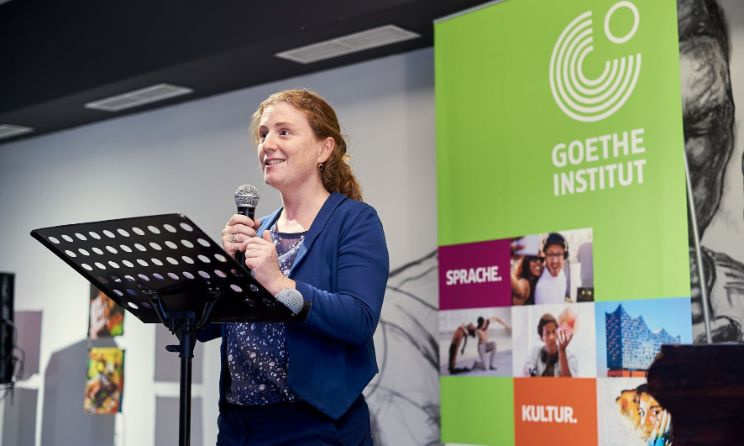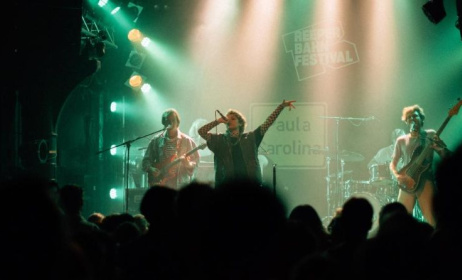Goethe-Institut Nairobi reopens doors to creatives after revamp
Creatives and students are urged to make use of the opportunities available at Goethe-Institut in Nairobi, Kenya, to bolster the growth of the cultural and creatives sector and positively impact livelihoods.
 Goethe-Institut Nairobi director Lilli Kobler.
Goethe-Institut Nairobi director Lilli Kobler.
This was the sentiment of Goethe-Institut Nairobi director Lilli Kobler during the reopening of the German cultural centre on 17 February after it refurbished its premises in the Kenyan capital.
“Goethe-Institut has always been a place to meet and exchange, learn and debate, and our desire is that our new spaces cater to this in a modern, customer-friendly and innovative way,” she said.
“Supporting the vibrant cultural scene with spaces, experiments and exchange programmes, exploring avenues to boost the creative industry, creating access to information about Germany and the German language, and inviting debate about those pressing challenges, is what drives us.
Kobler added that Goethe-Institut and its staff hoped that many people would take advantage of the facilities and programmes on offer to grow and broaden their creative talents, push the boundaries of their work and tap into the institute’s global networks.
The event was attended by the German deputy ambassador to Kenya, Thomas Wimmer, who lauded Goethe-Institut for continually implementing innovative and wide-ranging programmes that had gone a long way in deepening the understanding of the Kenyan and German cultures and experiences, and enhancing the creative development of local talent.
He said that over the years, the institute had become a melting pot that celebrated the diversity of the German and Kenyan heritages and provided a platform for different creatives to express themselves, learn German and interact with Germany right in the heart of Nairobi.
“I want to sincerely commend the Goethe-Institut for being a forerunner of the cordial and deeper cultural and educational relations that Kenya and Germany have been enjoying for the last six decades. It is such projects that have contributed towards intensifying and enriching the bilateral relations between our two countries,” he said.
During the event, guests were treated to an exhibition by Jojo Records of handpicked vinyl records from as far back as the 1970s. The exhibition is one of more than 15 projects curated for a three-day celebration that took place from 17 to 19 February showcasing culture in Nairobi.
Also in attendance was Kenya Cultural Centre CEO Michael Pundo who said there were numerous opportunities and avenues that had been created by partnerships between private and public sector players across the value chain of the cultural and creative sector.
“We acknowledge the problems that the sector has faced for decades,” he said. “However, we also do recognise the huge potential the sector has in becoming a key economic driver, export earner and a massive job creator. I am delighted that many stakeholders are coming together to collectively address the critical needs in the sector, thus laying a solid foundation for realising this vision of transforming the entire sector.”
The revamped Goethe-Institut will now aim to contribute further towards the growth of an active, vibrant and sustainable cultural scene in Kenya.






























Comments
Log in or register to post comments